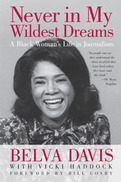This book is the first practical, hands-on guide that shows how leaders can build psychological safety in their organizations, creating an environment where employees feel included, fully engaged, and encouraged to contribute their best efforts and ideas.
Fear has a profoundly negative impact on engagement, learning efficacy, productivity, and innovation, but until now there has been a lack of practical information on how to make employees feel safe about speaking up and contributing. Timothy Clark, a social scientist and an organizational consultant, provides a framework to move people through successive stages of psychological safety. The first stage is member safety-the team accepts you and grants you shared identity. Learner safety, the second stage, indicates that you feel safe to ask questions, experiment, and even make mistakes. Next is the third stage of contributor safety, where you feel comfortable participating as an active and full-fledged member of the team. Finally, the fourth stage of challenger safety allows you to take on the status quo without repercussion, reprisal, or the risk of tarnishing your personal standing and reputation. This is a blueprint for how any leader can build positive, supportive, and encouraging cultures in any setting.

Much networking advice assumes that you need to be an off the chart extrovert to succeed. Nothing could be further from the truth. In this video workshop, Devora Zack proves that real networking means working with – rather than fighting against – your natural personality.
Zack, an avowed introvert and a successful consultant who speaks to thousands of people every year, shatters stereotypes about people who dislike networking. She then provides an innovative, customized system of networking that leverages your own unique strengths.
This video shows you how to forge meaningful, lasting connections in all kinds of situations, not just formal networking events. With the help of engaging exercises, you’ll learn techniques for cultivating your networking “A” game, while remaining true to yourself.
Understand why both introverts and extroverts possess natural skills for networking
Gain a “network survival kit” to survive and thrive at networking events
Discover how the five components of a well-formed goal can help you achieve your networking objectives
Learn how to make a positive first impression and how to end a conversation gracefully
Master methods to host a dynamic networking event
Prepare networking strategies for business trips and conferences
Apply versatile tools to launch and organize a job search
Learn the best approaches to following up with contacts
Devora Zack, CEO of Only Connect Consulting, is a global keynote speaker, consultant, and coach with 100+ clients such as Cornell University, Smithsonian, Australian Institute of Management, U.S. Department of Education, and Mensa. Her books, Singletasking, Networking for People Who Hate Networking, and Managing for People Who Hate Managing, are published in over 25 languages. She has been featured on ABC-TV, Fox Business, USA Today, Wall Street Journal, Forbes, and Fast Company.
2009
Amy Sheldrake, young mother and killer whale trainer-in-training, marvels at the complex behaviors her superiors at SeaWorld are able to coax out of these enormous beasts, while she and her husband struggle to make their beloved—and much smaller—son Josh obey the simplest rules. Using the story approach popularized by Ken Blanchard in his many bestsellers, this unique parenting book draws on the experiences of two of the coauthors—as both pioneering marine mammal trainers and as parents—to show how the same principles that induce killer whales to leap into the air can persuade young children to go quietly to bed.
Like Amy and her husband Matt, once you get the hang of the three Whale Done principles, you'll see a dramatic difference in overcoming challenges like following bedtime routines, dealing with tantrums, introducing new foods, sharing, avoiding overuse of the word no, learning to care for a pet, and instituting time-outs.
Davis worked her way up to reporting on many of the most explosive stories of recent times, including the Vietnam War protests, the rise and fall of the Black Panthers, the Peoples Temple cult mass suicides at Jonestown, the assassinations of San Francisco Mayor George Moscone and Supervisor Harvey Milk, the onset of the AIDS epidemic, and the aftermath of the terrorist attacks that first put Osama bin Laden on the FBI's Most Wanted List. She encountered a cavalcade of cultural icons: Malcolm X, Frank Sinatra, James Brown, Ronald Reagan, Huey Newton, Muhammad Ali, Alex Haley, Fidel Castro, Dianne Feinstein, Condoleezza Rice, and others.
Throughout her career Davis soldiered in the trenches in the battle for racial equality and brought stories of black Americans out of the shadows and into the light of day. Still active in her seventies, Davis, the “Walter Cronkite of the Bay Area,” now hosts a weekly news roundtable and special reports at KQED, one of the nation's leading PBS stations,. In this way she has remained relevant and engaged in the stories of today, while offering her anecdote-rich perspective on the decades that have shaped us.
- The inspiring autobiography of an American pioneer
- Features vivid stories of Davis's encounters with famous people and historic events
- Honest, revealing, at times humorous, at times harrowinga deeply important document of our times.
As the first black female television journalist in the western United States, Belva Davis overcame racism and sexism and helped change the face and focus of television news. She shares the story of her extraordinary life in her poignantly honest memoir.
Davis is no stranger to adversity. Born to a fifteen-year-old Louisiana laundress during the Great Depression and raised in the overcrowded projects of Oakland, California, Davis suffered abuse, battled rejection, and persevered to achieve a career beyond her imagination. She has seen the world change in ways she never could have envisioned, from being verbally and physically attacked while reporting on the 1964 Republican National Convention in San Francisco to witnessing the historic election of Barack Obama in 2008.
Davis reported many of the most explosive stories of modern times, including the Vietnam War protests, the Black Panthers, the Peoples Temple cult mass suicides at Jonestown, the assassinations of San Francisco Mayor George Moscone and Supervisor Harvey Milk, the onset of the AIDS epidemicand from Africa, the aftermath of the terrorist attacks that first put Osama bin Laden on the FBIs Most Wanted List. She encountered a cavalcade of cultural icons: Malcolm X, Frank Sinatra, James Brown, Nancy Reagan, Huey Newton, Muhammad Ali,
Alex Haley, Fidel Castro, Dianne Feinstein, Condoleezza Rice, and others.
Belva Davis soldiered in the trenches in the battle for racial equality and brought stories of black Americans out of the shadows and into the light of day. Now in her seventies, the Walter Cronkite of the Bay Area hosts a weekly news roundtable and special reports at KQED, one of the nations leading PBS stations.
Click here for the press release
Joy Wiggins and Kami Anderson advocate that the only way women can successfully support each other is by addressing the varying intersections of our individual power and privileges, particularly focusing on how some privileges are inherited along lines of race, class, sexuality, and geography. When we fully examine how we have power in certain situations and not in others, we start to see where we can lend privilege to create truly inclusive spaces for the historically underrepresented and marginalized.
Wiggins and Anderson look at how the dynamics of privilege and power have played out in the history of the feminist movement and identify and break down socialized behaviors and ideologies that trigger implicit bias and microaggressions. And they provide tools to interrupt negative thoughts and actions so women can nurture mutual support and show up as their authentic selves. Each chapter features a dialogue between them reflecting on how issues of race, privilege, and power have played out in their lives and their friendship.
The system of patriarchy has created an environment for women to knowingly and unknowingly sabotage each other—it is not inherent in women themselves. This book teaches us how to take an active approach to becoming better allies for each other and by so doing improve our world and end the cycle of injustice.
































